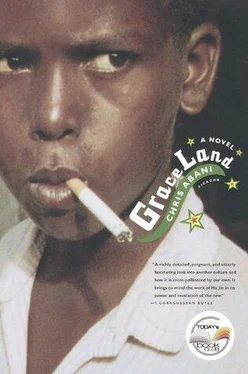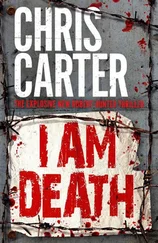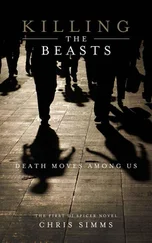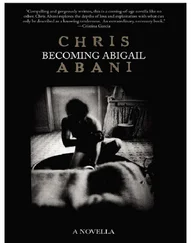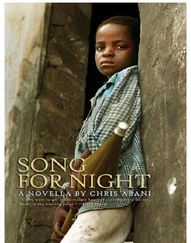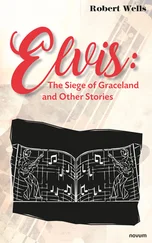“Gran, you don’t believe the stories these people have been writing to you, do you?” he asked.
“Why? Are you changing what is written there?” she demanded suspiciously.
“No, no,” he protested quickly. “But I mean surely you did not believe the story about the priest exorcising the goblins.”
“Why not? I have seen goblins.”
“Okay,” he said, taking a deep breath. “What about the woman who met black people on Mars?”
“What about it? We are everywhere. Why all tha questions, eh? For so long my pen pals held out on tha good stories. Instead they wrote boring letters about how well their flowers were blooming and tha’ their local supermarket now had shark and crocodile steaks. What do I care about all tha’, eh? Stop wasting my time, boy, and read,” she said.
With a sigh he unfolded a letter from Russia and began.
Afikpo, 1978
“Not every hoose is a hame,” Oye said. “And since your mother died, this hoose is no hame. Not with him here, tha way he is.”
She balanced her considerable bulk on the tired sway of a wicker chair and began shelling pumpkin seeds into a silver bowl. Occasionally, she would nibble on some of the sweet soft flesh, but for the most part, she saved it. The seeds would be ground into a soft paste on the flat grindstone later and were the main ingredient of egusi soup. In between shelling, Oye sipped on endless cups of too milky, too sweet tea and doled out snippets of wisdom to passersby, who invariably stopped to talk to her.
“Here, lad, go and grind these on tha’ stone in the corner,” she said, passing Elvis the bowl. Then, just as quickly, she snatched the bowl back from his very reluctant hands. He was pleased at the reprieve. The grinding stone was the worst chore. But it turned out to be only a temporary reprieve. “Better start with those peppers over there,” she said instead.
Elvis ground the dry chilies, trying to make all the seeds vanish, mixing in water to thicken it into a paste for the soup.
“I’ve finished,” he called over.
“Already, laddie?” she asked, hauling herself creaking to her feet. “Here, let me see.”
And she spread the paste around on the stone with a wet knife, like jam on toast. Then, with an exasperated sigh, she scraped it into a pile.
“More, more. Like egusi, tha chilies have to be a smooth paste.”
“But I am a boy,” Elvis argued.
“Nobody said boys had to be stupid, did they?”
With a sigh Elvis went back to the grindstone, muttering under his breath.
“What’s tha’, laddie?”
“Nothing.”
“Doesn’t sound like nothing to me. Spit it oot.”
It was just his luck to be born into the only home in the small town with a psychotic father, a dead mother and a Scottish-sounding witch for a grandmother, he said, and he wished his life were different. She nodded sympathetically.
“Ach, lad, but yer canna paint a canary yellow,” she said.
Elvis looked up at her. On the table next to her was a tray that held several pots, jam jars and bottles of herbs and infusions. All day, people came up to Oye complaining of some ailment or the other. She would reach into one of the jars or containers and pass out some dried herbs or a combination of such. Other times, she would nod and just listen, still as a statue except for when, every few minutes, she would bend down and feed some carrots or lettuce to the turtles in an earthenware bowl of water at her feet. When she was alone, she laughed and talked to the turtles sotto voce , as though they shared some joke.
“How come you don’t talk to the turtles when people are about?” he had asked.
“Because I know tha difference between a gift and insanity.”
Finally Elvis finished grinding the chilies into a grade-A paste. Oye usually had a treat for him, a bottle of soda or, even better, a malt drink. This time was no different and, drinking straight from the bottle, he finished it in a few gulps. He looked at her hopefully, but before he could speak, she said, “No, laddie. No more, it’ll give you piles. You dinna want to be penny wise, do you?”
Elvis smiled. Oye had a talent for using clichés wrongly. Only the other day she had complained about not having green fingers. Sitting on the floor at her feet, he read through his mother’s journal while he waited for the long line of petitioners to be attended to. When the last of them had left and she looked down at him, she saw he was lost in thought, stroking the cracked binding of the journal.
“Thinking about your mother?”
He started.
“Yes. Tell me about her, Granny.”
“Have I taught you nothing, lad?”
“Please?”
“Tha’s better. I’ve told you about her so many times.”
“Once more. Please?”
“You are going to be here for a while, so you might as well make yourself useful,” she said, passing him a handful of dried melon seeds and a sheet of newspaper.
He grimaced but knew there was no getting out of it, so he began to shell.
“Beatrice was a stubborn one, like you. She always had to have her way. Ach! But she was beautiful, even more so than a mermaid, and dark. Probably as dark as tha antimony women use to draw patterns on themselves. She never could wear makeup, your mother. She was so dark it never showed. I always said she was like a photo negative!” Oye broke into a laugh that soon became a hacking cough.
He felt a pang of worry go through him, even though he knew she only had a cold. Oye was getting older each day, and he always worried when she showed the slightest sign of illness. Torn between concern and his impatience for her to continue, he asked:
“Are you okay?”
“Ach,” she continued. “Where was I? Oh yes, Beatrice. She loved to dance, your mother. She danced all tha time, and I would watch her spin like a leaf caught in tha wind. I was so afraid for her, she seemed to have no substance, you know? Like she was made out of air, or a dream.”
He tried to imagine his mother as made out of air. All of his memories of her were sketchy and had been supplemented by the fantasies he built around the things he read in her journal. Oye had once told him that he had been old enough when Beatrice died to remember her clearly and that it was just his pain that was keeping him from fully remembering. He didn’t know if she was right or wrong. He concentrated really hard to try and call up an image of his mother. The only one that came up was of her standing over him in her garden, the sun behind her, a tall, dark, smiling presence. Not wanting to miss anything, he returned his attention to Oye and her story.
“She loved music. She sang for hours while she did all tha chores — and what a voice, ach! She could not have goat it from me, I dinna sing, lad. No. But her father, he could hold a tune. Tha’ was your grandfather. He died when I was still a young lass.”
“How old were you when you were married, then?”
“Eleven.”
“Eleven?”
Oye laughed through her cough. When she caught her breath she said, “Aren’t you precious, wee one! If you could see your face — ach! Things were different in those days, you know. By fifteen, most of us had already had three or four children. It was tha way.”
“But that doesn’t seem right. You were only a child.”
“I dinna say it was right, lad. But I dinna say it was wrong, either. I said it was tha way then.
“Anyway, your mother loved music, and when your grandfather died, she inherited his gramophone. It was a beastie of a thing, and you had to keep winding it up or tha people singing sounded like they were drowning. Ach! I never cared much for it myself. She stopped using it though and bought tha’ new record player. Your mother loved Elvis Presley …”
Читать дальше
